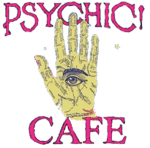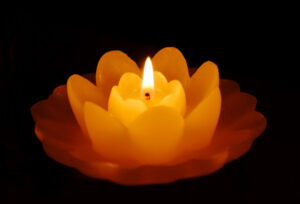Spirituality FAQ – Answers to Frequently Asked Questions about spiritual growth, transpersonal development, being and becoming, presence, conscious awareness, spiritual self-inquiry, meditation, and authentic prayer
What is spiritual development (or transpersonal development)?
What is spiritual development (or transpersonal development)?
Spiritual or transpersonal development means “waking up” spiritually, i.e. raising our level of consciousness (to connect with our true nature) and widening our breadth of consciousness (to experience life more fully). It involves reconnecting with, knowing and ultimately realising our true nature. It is not just about transcending the ego and the world; it is equally about bringing higher levels of consciousness down into our being and expressing them in our daily life. In this last respect, it is about being here as fully as we can and experiencing all of life.
How can I develop my consciousness?
We achieve our full potential by allowing our consciousness to unfold naturally through living consciously (being) and by proactively working with that natural process (becoming):
Being is where we are on Life’s path, right here and now. It is the inherent perfection of the present moment. It is our own inherent perfection, just as we are; and it is Life’s inherent perfection, just as it is.
Becoming is the natural unfoldment and evolution of consciousness that comes from proactively engaging with Life. It is our inherent perfection becoming even more perfect. It is the living journey.
The development of consciousness involves both being and becoming. Our “goal” (becoming) is the dynamic unfoldment of consciousness that continually manifests in the present moment (being).
What is presence?
Presence is fundamental to personal development and spiritual development. Presence has a palpable feeling – it feels like a subtle energetic swelling or presence within the body (or part of the body). It has a sense of fullness, like something within us is expanding and trying to get out. This pretty much describes what our soul is doing – manifesting more fully within us and coming to the fore. Presence requires us to be present spatially (right here) and temporally (right now). Presence is “being”, right here, right now.
What is conscious awareness?
Conscious awareness is observing the mind without getting caught up in thoughts, it is observing the heart without getting caught up in emotions, and it is observing the body without getting caught up in sensations. It gives us the power to notice our thoughts, emotions and behaviours without identifying with them or defining ourself by them. We don’t need to hold on to our identities, roles, limitations, stories, beliefs, emotions or feelings to be what we truly are. In fact, to be what we truly are, we need to let go of all the stuff that keeps us from realising our true nature.
What is conscious presence?
When we are consciously present, our sense of self moves away from our ego-self and towards our true-Self. The more we practice conscious presence, the more permanent the shift becomes. Conscious presence is conscious awareness (of our entire being and our local environment) combined with presence (the palpable presence of our soul or beingness throughout our body). This simple practice is incredibly beneficial for psychological and spiritual development.
What is meditation?
Meditation is the practice of presence (here-ness) and present-moment awareness (now-ness). Meditation is open-focused presence, not mindless absence. It is not about escapism or being in a spaced-out trance; it is about being present (here and now), more than we are normally. Meditation involves observing with an open mind and feeling with an open heart – without thinking, analysing, judging or trying to change anything. Meditation is noticing “what is” and surrendering to “what is”.
Is meditation difficult?
Meditation is experiencing “what is” without any judgement, preference or agenda. It is as simple as that. Meditation is about observing, feeling and welcoming whatever arises, even if what arises is resistance, boredom, restlessness, mind-chatter, critical thoughts or all of the above. Perhaps the biggest misunderstanding about meditation is that we have to be mentally, emotionally and physically calm. This is not true; and trying to achieve that can be incredibly difficult and can result in a lot of unnecessary frustration and suffering. Striving to achieve inner peace by attempting to control the mind, heart and body can actually take us further away from our goal. Meditation is all about letting things go and letting things be.
What are the benefits of meditation?
Regular meditation enriches our life, develops our consciousness and cultivates qualities that will benefit us now and long into the future. It develops mind qualities such as creativity, intuition and wisdom. It develops heart qualities such as compassion, courage and joy. It develops body qualities such as will, resilience and presence. It systematically activates higher levels of consciousness. It increases presence and purifies awareness. It develops a deeper understanding of ourself and the nature of reality.
What is spiritual Self-inquiry?
Self-inquiry is not a path that leads us anywhere – it is a path that stops us in our tracks so that we can rediscover who we really are. Our habitual fixation on our thoughts and emotions keeps us identified with our false concept of self (ego-self). Self-inquiry is not about stopping our thoughts and emotions; it is about dis-identifying from them; it is about becoming that which is beyond thinking, feeling and doing. Self-inquiry focuses on the experiencing activity instead of the “object” of experience. It involves being the experiencing presence and awareness. With practice, the experience becomes easier, deeper and steadier, and can ultimately result in Self-realisation.
Who am I?
The deeper we sense into ourself, the less we find. Our concept of “who we think we are” falls away to reveal nothing but the presence, pure awareness and individual uniqueness of our true nature. The experience is timeless, expansive, blissful and still, but there is no experiencer – the experiencing is just happening. When we look to see who is having the experience, we don’t find anyone. There is no subject or experiencer, there is only witnessing or experiencing. There is barely any identity, except for the subtle but familiar uniqueness of our own beingness (which is most easily felt in the chest). This is because “who we truly are” is not an object in the conventional sense or the conceptual sense, so there is no-thing for identity to coalesce around. There is only the direct experience of our ontological beingness – the very existence of our soul.
What is the false self or ego-self?
The mind conceptualises everything, including our self. Ego is our mis-identification with our conceptual self (our mind’s idea of who we are). Our conceptual self is just a thought, which is obviously not who we truly are. Our true-Self is more than just a thought-form and has an enduring ontological existence.
What is authentic prayer?
If conventional prayer is asking for something from God, authentic prayer is giving something to God – giving our conscious presence to God/Life/Universe. Authentic prayer is a communion between our Self and the one SELF (God/Life/Universe). It is not an outward expression; it is an inner connection with the infinite power of God/Life/Universe that is inherent within us all. It is actively being the change that we want, right here and now. The universe is one integrated system, so whatever we embody affects everyone and everything. Authentic prayer isn’t something that we “do”; it is a subtle process that engages different qualities of “being”.





